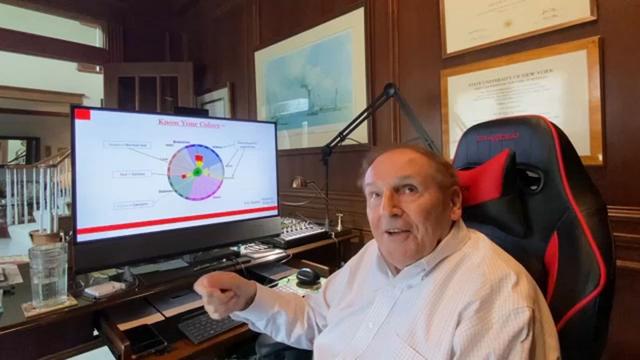ROCHESTER, N.Y. — We’ve all been there. You go to the doctor and get test results that are hard to understand. But new technology being developed by RIT aims to change that.
These days, you’re likely to find Dr. Russ Bessette playing with his greyhound Zippy at his home outside of Buffalo.
But nine years ago, he created a new technology.
“You go to the doctor and get a blood test," said Dr. Bessette. "They say you’re healthy, you’re good, but you don’t know how good is good. Are you at the edge, are you about to fall off?”
Russ got the idea for "Know Your Colors" after reading a book about the future of health care.
From 2000 to 2012, he developed an algorithm that can track illness progression, results of medical treatment and the estimated cost of care.
It’s all based on a person's individual chemistry.

“When people get a sheet of paper and see all the tests, they don’t know which test is with which organ," Bessette said. "So we grouped the test with the organs it measures.”
The algorithm creates a chart that looks like a color wheel, showing tests for each organ. The closer to the green circle center, the healthier a patient is. When the results move into the red zone, that’s when something is wrong.
"Know Your Colors" can also be used to track chronic illnesses. It turns out that’s something Russ would find out about firsthand.
“I got too sick to continue this and it wasn’t until recently that my wife and I turned everything over to RIT," he said.
In 2014, Russ was diagnosed with two forms of cancer. While he was in and out of chemotherapy, he found himself unable to continue his work.
That’s where RIT comes in.
“What everybody agreed was if we could make this freely available to all, we could try to help all of health care,” said Dr. Ryne Raffaelle.
Russ met Dr. Raffaelle back when he was the director of NYSTAR.
During that time, Russ toured 300 colleges in the state. He became impressed with the hands-on work students at RIT were doing. That's why he donated all his patents and research related to "Know Your Colors" to the school. He hoped to give students the chance to further develop his research.
“Students these days, they’re interested in giving back and helping others. It really warms my heart and gives me hope for the future,” Dr. Raffaelle said.
A big part of what RIT will do is fine-tuning the algorithm for "Know Your Colors" and improving the digital platform.
It’s a little bittersweet for Russ, but he wanted his technology to be transparent and accessible. With RIT, "Know Your Colors" has the potential to be just that.
“My wife said 'Know Your Colors' has been your baby, but now it’s time for your baby to go to college,” Dr. Bessette said.




